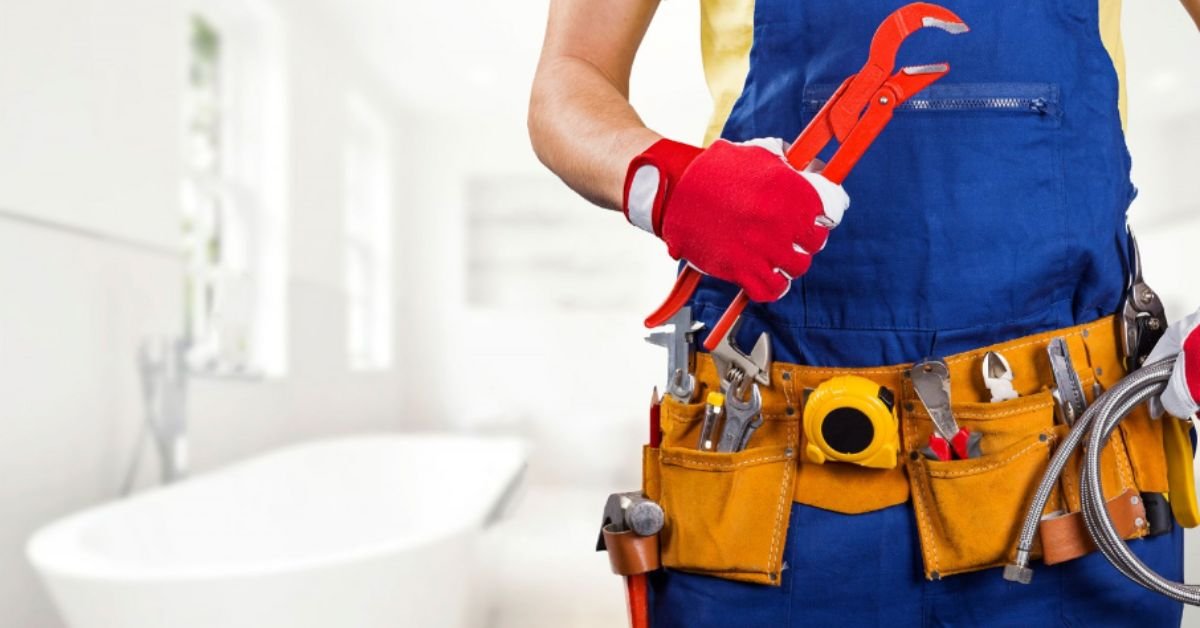Plumbing issues can be daunting, especially for beginners. However, even a novice can handle basic plumbing repairs and maintenance tasks with the right tools and knowledge. Whether fixing a leaky faucet or unclogging a drain, having the right plumbing tools can save you time, money, and frustration.
This comprehensive guide will explore the essential plumbing tools every beginner needs, their uses, and how to build a practical toolkit for home repairs.
Why Plumbing Tools Are Essential for Beginners?
Plumbing tools are indispensable for addressing common household issues. They not only make repairs easier but also help prevent further damage. Here’s why investing in plumbing tools is worth it:
- Cost-Effective: Handle minor issues yourself instead of calling a professional for every problem.
- Convenience: Fix leaks and clogs immediately without waiting for a plumber.
- Skill Development: Gain confidence in managing household maintenance.
Must-Have Plumbing Tools for Beginners
To tackle basic plumbing repairs, these essential tools are a great starting point:
Pipe Wrench
A pipe wrench is a versatile tool for gripping and turning pipes. It’s useful for:
- Tightening or loosening pipe fittings.
- Adjusting large plumbing fixtures.
Invest in two pipe wrenches (one for gripping and another for turning) to manage plumbing jobs more effectively.
Plunger
Every home needs a plunger for clogged sinks, toilets, and drains. There are two common types:
- Cup Plunger: Best for flat surfaces like sinks.
- Flange Plunger: Designed for toilet clogs.
Adjustable Wrench
This tool is ideal for tightening or loosening nuts and bolts on pipes and fixtures. Look for one with a comfortable grip and a vast jaw capacity.
Plumber’s Tape (Teflon Tape)
Plumber’s tape is a must for sealing pipe threads. It prevents leaks by ensuring a tight, watertight seal.
Plumber’s Snake (Drain Auger)
For stubborn clogs, a plumber’s snake can reach deep into pipes to clear blockages. It’s more effective than chemical drain cleaners and safer for your pipes.
Basin Wrench
This specialized tool works in tight spaces under sinks, such as loosening or tightening faucet nuts.
Pipe Cutter
A pipe cutter provides clean, precise cuts for PVC, copper, or metal pipes. It’s easier to use than a hacksaw and creates smooth edges for better fittings.
Caulking Gun
A caulking gun applies sealant around sinks, bathtubs, and pipes to prevent leaks and water damage.
Bucket and Towels
While not a tool per se, a bucket and old towels are invaluable for managing water spills during repairs.
Safety Gear
Always prioritize safety when working with plumbing tools. Equip yourself with:
- Gloves for protecting hands.
- Safety goggles to shield eyes from debris.
- Knee pads for comfort during prolonged repairs.
How to Build Your Plumbing Toolkit?
Building a beginner-friendly plumbing toolkit doesn’t have to break the bank. Follow these steps to assemble your kit:
- Start with Essentials: Purchase the tools listed above to handle common issues.
- Choose Quality Over Quantity: Invest in durable tools from reputable brands.
- Organize Your Tools: Use a toolbox or organizer to keep your tools accessible and neat.
- Expand Gradually: Add specialized tools as your skills and confidence grow.
Tips for Using Plumbing Tools Safely
Handling plumbing tools requires proper technique and caution. Here are some tips to keep in mind:
- Turn Off Water Supply: Always shut off the main water valve before beginning any repairs.
- Read Instructions: Familiarize yourself with each tool’s operation before using it.
- Avoid Over-Tightening: Tighten fittings just enough to prevent leaks, as overtightening can damage threads.
- Seek Help if Needed: Don’t hesitate to consult a professional for complex issues.
FAQs About Plumbing Plumbing Tools
What is the most essential plumbing tool for beginners?
A plunger is the most essential tool for beginners because it’s versatile and easy to use for clearing common clogs.
Can I use a regular wrench instead of a pipe wrench?
While a regular wrench can sometimes work, a pipe wrench provides a better grip and is designed explicitly for plumbing tasks.
How do I prevent leaks after repairs?
Use the plumber’s tape to seal pipe threads and ensure a watertight connection.
Is it safe to use chemical drain cleaners?
Chemical drain cleaners can damage pipes over time. A plumber’s snake is a safer and more effective alternative.
Where can I buy plumbing tools?
Plumbing tools are available at hardware stores, home improvement centres, and online retailers.
Do I need professional training to use plumbing tools?
No, most plumbing tools are beginner-friendly. However, it’s essential to follow instructions and practice caution during use.
Conclusion
Equipping yourself with essential plumbing tools is the first step toward tackling minor household repairs confidently. From pipe wrenches to plungers, these tools can save you from unnecessary expenses and help you learn valuable skills.
With the knowledge shared in this guide, you’re now prepared to handle plumbing challenges like a pro. Start building your plumbing toolkit today and enjoy the satisfaction of maintaining your home efficiently.
Always consult a licensed plumber for advanced issues or more significant projects to ensure quality and safety.
Latest Post!
- The Ultimate Guide to Luxurious and Eco-Friendly Bath Products: Featuring Cunke
- Bailey Self Storage: The Secure and Convenient Storage Solution You Need
- PR Construction, LLC: Building Dream Homes with Exceptional Craftsmanship
- A Detailed Look at Lang’s Painting: Unveiling the Artistry Behind the Masterpieces
- Moving Made Easy with AMPOL Moving, Inc.: Your Trusted Illinois Partner
- WepBound: A Groundbreaking Platform Revolutionizing Digital Connectivity






